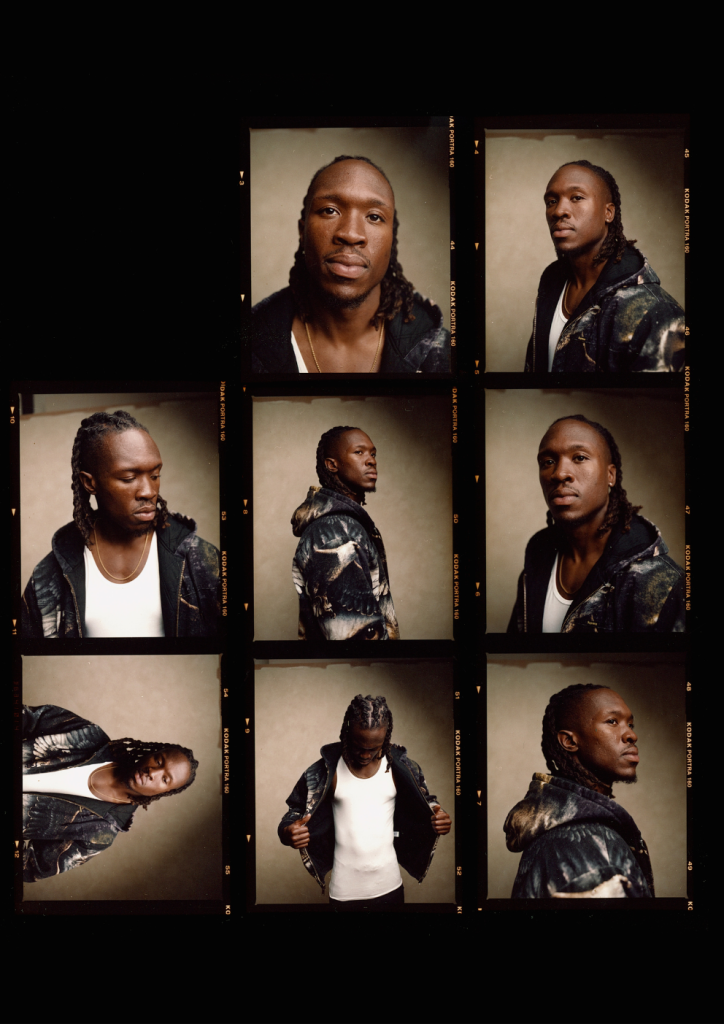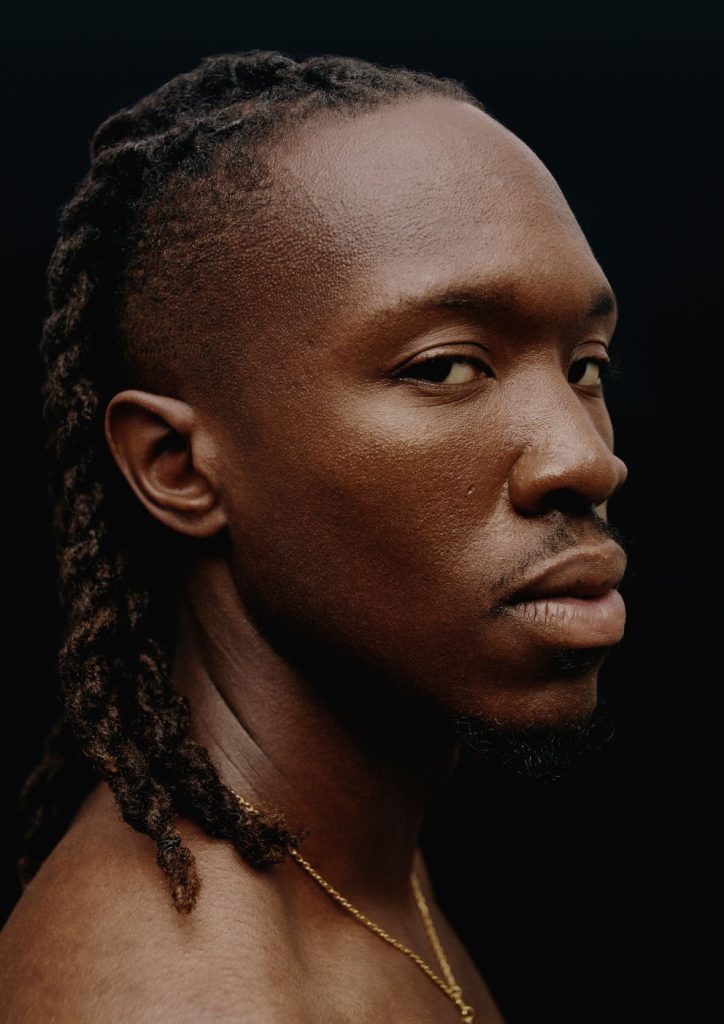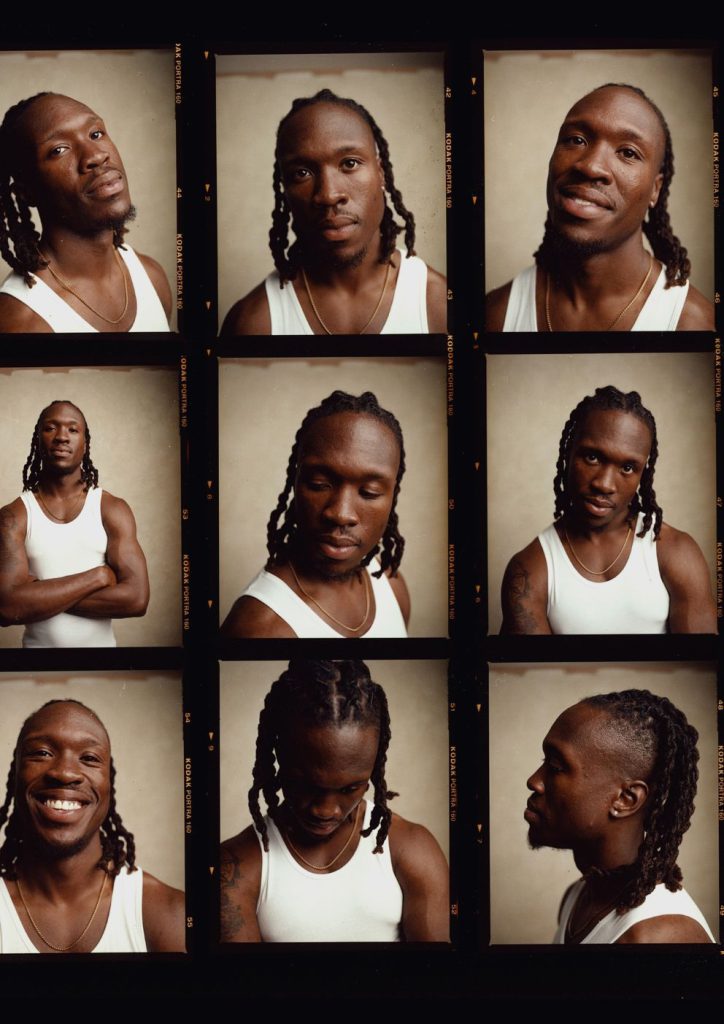W: Richard Hudson-Miles
In his short career so far, the Leeds-based rapper Graft has already picked up a string of accolades. These include the MOBO Unsung Award 2018, a Legacy Award in 2019, and winning The Rap Game UK 2020. That competition was judged by UK rap royalty Krept and Konan and BBC 1Xtra’s Head of Music DJ Target. Subsequently, Graft released his debut single ‘You Know What’ in July 2021 on Krept and Konan’s Dirty label. In a career already punctuated with glittering trophies, it is fitting that his latest six-track EP, released in November, is titled Golden Child

During our interview, it becomes quickly apparent that Graft’s rise to fame has not gone to his head. Indeed, he comes across as refreshingly down to earth, open, thoughtful, spiritual, and certainly driven. Graft speaks candidly about the deeper meanings behind the Golden Child EP, which include family, responsibility, ambition, struggle, love, loss, and life in Northern England. Belying stereotypes of rap machismo, Graft describes these as the “most vulnerable and authentic tracks” he has made to date.
Graft grew up within Leeds’ Chapeltown district. For the unfamiliar, Chapeltown was a formerly grand area of Victorian north-east Leeds, earmarked for gentrification before the middle-classes fled the thick industrial pollution of the city for its suburban expansion areas. Chapeltown subsequently fell into decline and became home to the post-war immigrant Windrush communities. Quickly, it was reborn as an epicentre of Afro-Caribbean culture. The grand Victorian Park in Chapeltown now hosts one of the longest running Caribbean carnivals in Europe, covered on BBC 1Xtra since 2005. The Chapeltown West Indian Centre has hosted legendary gigs and is synonymous with the rise of the Dubstep scene.


Chapeltown has clearly left its mark on Graft. His name is taken from the Yorkshire slang for labour and toil. He speaks about sharpening his rhymes during fierce rap battles outside the Chapeltown school gates. At one point, he played football for Leeds United’s academy and dreamed of playing professionally in the Premier League. He also remembers his mum working two or three jobs to pay the bills. Like many young people growing up in provincial Northern cities, his relationship with his hometown is conflicted. “Leeds taught me that there is so much more in the world [than this]. That I didn’t want to be here forever”. He is not alone in this sentiment. The depressing sub-text of the current Leeds Museum exhibition on Northern Hip-Hop is that most rappers had to leave the North to be successful, if success ever came at all. The first meaning of Golden Child, then, is chasing your dreams, against all odds, rather than accepting your lot in life.
Calling yourself the ‘Golden Child’ might appear arrogant or triumphalist, but given the context above, it is more accurately read as defiant. There is a strong precedent for this in the history of rap music. Many MCs sported gold chains, Rolex watches, and personalised diamond rings as a two-fingered gesture to a society which would structurally deny young black men the golden route to success. Embodying this partisan attitude, the rapper Jay-Z famously turned up to a So So Def party in 2019 wearing a $200,000 solid gold Cuban chain. This conspicuous display of wealth disguises Jay-Z’s relentless social and political activism, not to mention his philanthropy. In 2003, Jay-Z established a fund to “help individuals facing socioeconomic hardships to further their education at post secondary institutions”. He also paid the legal bills for the black protestors demonstrating against police brutality in Baltimore in 2008.

Jay-Z is cited by Graft as one of his favourite rappers, alongside Nas. Certainly, you can identify a continuity between Graft’s lyrics and Nas’ gritty tales of street life in Queensbridge. However, within Jay-Z’s apparently paradoxical combination of flex culture and community activism, we also find another layer of meaning within Golden Child. “With the title, I wanted to showcase that I am a winner, a champion, but I also wanted to turn a focus on the harder side of this - mental health, break-ups, depression”. Graft is clearly not a typical MC. He describes his identity as being forged against, rather than within, the UK Grime scene that was so prevalent while he was growing up. “When I was young Grime was the main genre, alongside reggae, soca, and R&B. [However] the first songs I wrote were conscious hip-hop. Grime is very ‘in your face’, like battling, but this isn't what I wanted to do”.
This conscious, reflective side is most evident in the lyrics to Golden Child, which doubles as a dedication to the struggles Graft’s mother went through whilst raising him. For him, the deepest meaning of this track relates to the responsibility he feels towards his mother as her only child. “I’ve seen a lot of what she has gone through as a single mother, and also what we have gone through together. Growing up, I didn’t have the best relationship. [Now] I feel like I have a responsibility to change my mum’s life”.
The six tracks of the Golden Child EP take the listener on this heartfelt journey of responsibility and success against the odds. They also take in a surprisingly diverse range of musical influences en route. ‘Nostalgia Love’ is a garage influenced “summer banger”, written explicitly to “make people feel good”. ‘Same Yout as You’, which will be the second single, adds a distinctly soulful flavour to the typical Drill sound. ‘Hero to Villain’, which Graft describes as “an honest apology”, describes the catastrophic effects of a music career on romantic relationships. However, it is the lyrics to the EPs title track which most closely embody Graft’s artistic mission: “God made me a vessel to ignite change / And add to a global shift / Music in my soul and veins / Cherish the art, my heart’s in this / You stole my ancestors jewels / I boarded Earth a golden gift / Aligning with my soul purpose now to heal and uplift”. For Graft, the EP reflects “the change that I am going through artistically, and I want to take people on that journey”. That journey might begin in Leeds, but it also tours the estates of South London, the projects of NYC, the sound systems of Caribbean carnivals, and the late night Garage clubs of London and Chicago. Based on our conversation, and his recent trajectory, Graft’s final destination might well be the golden, promised land.

